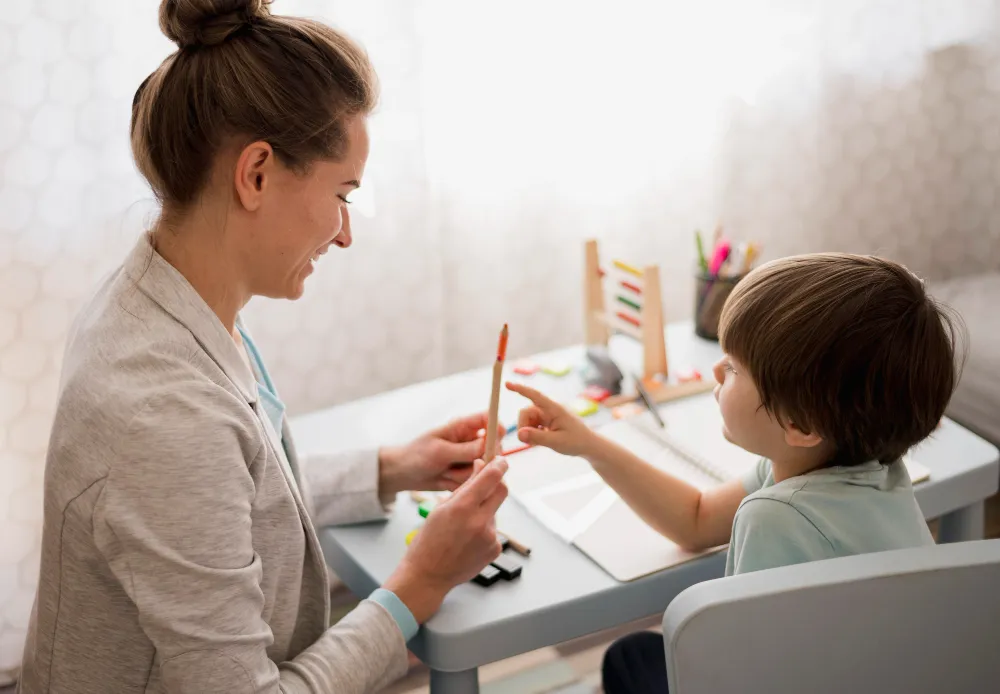🌟Growing Strong: How to Track and Support Child Development in Young Children
 🌟Growing Strong: How to Track and Support Child Development in Young Children
🌟Growing Strong: How to Track and Support Child Development in Young Children
Every child’s journey is unique, but #early-childhood- #educators and caregivers #play a vital role in observing, documenting, and nurturing milestones along the way. Knowing how to track and support child #development helps ensure children are thriving socially, emotionally, physically, and cognitively.
🤔 Why Is Tracking Child Development Important?
Tracking child development provides insight into a child’s progress and helps identify areas where they may need extra support. Developmental milestones—such as first words, social interactions, or problem-solving skills—can guide you in understanding if a child is on track.
Regular observation and assessment allow educators to design activities that build on strengths while gently addressing challenges. It also creates a strong foundation for communicating with families about #growth-and next steps.
To build deeper expertise, explore CDA Infant-Toddler Credential for a comprehensive understanding of #early-childhood development and care.
📝 How Can We Effectively Observe and Assess?
Observation is one of the most powerful tools an educator has. Watching how children interact, play, and solve problems reveals valuable information about their #developmental stage. Using structured approaches, such as checklists, anecdotal notes, or video recordings, makes these insights more reliable.
ChildCareED offers training to help refine these skills:
You can also learn more in our article: Assessing Through Observation.
📊 What Tools Help Track Development?
Having the right tools ensures observations are meaningful and consistent. Templates for anecdotal records, developmental milestone charts, and digital tracking systems can make the process easier.
Check out this helpful resource:
These tools allow educators to document progress over time, making it easier to see patterns and plan interventions.
🌱 How Do We Support Growth Beyond Tracking?
Tracking is only the first step. The true impact comes from using the data to support growth. This could mean adjusting #lesson-plans, introducing new materials, or providing targeted encouragement for skills like problem-solving, communication, or self-regulation.
By linking observations to curriculum planning, you ensure that each child’s unique needs and abilities are #nurtured. Professional development courses, like those listed above, can help educators connect observation with intentional teaching strategies.
💬 How Can Families Be Involved?
Families are partners in child development. Sharing observations and assessments in clear, supportive ways helps families feel confident in continuing growth at #home. Invite them into the process by sharing resources, milestone updates, and strategies for reinforcement.
🌟 Final Thoughts
Tracking and supporting child development isn’t just about hitting milestones—it’s about honoring the whole child and fostering a love for learning. With the right tools, training, and commitment, educators can empower children to grow into confident, capable learners.
If this article inspired you, follow ChildCareED on social media for more resources, strategies, and professional development opportunities. Together, we can nurture every child’s potential!
- CDA Subject Area 7
- Early Childhood Education
- Positive Attention: Interactions & Supervision for Infants & Toddlers
- Families, Communities, and Classrooms: Working Together for Children
- CDA Bridge Bundle: Family Child Care without Portfolio Review
- Language Development in Early Childhood
- Power of Art: Bldg Self-Esteem & Positive Behavior for ALL Abilities ONLINE
- Goodbye Glitter Glue, Hello Growth: Child Development Milestones to Watch for in the New Year
- Childhood Education in Georgia: A Growing Focus on Quality Learning
- 7 Skills Every Childcare Provider Should Master
- Why Working with Kids is the Ultimate Career Choice: Benefits You’ll Love!
- 🌱Watch Me Grow! How to Track and Support Child Development in Young Children
- Starting Strong in Nevada: What Childcare Professionals Need to Know About Required Courses
- 🌟Growing Strong: How to Track and Support Child Development in Young Children
- 🍎 How Can Healthy Habits in Child Care Shape a Child’s Future?
- 🔍 What Do You See When You Watch a Child Learn?
- What Training Is Required to Be a Childcare Director in California?
- Typical vs. Atypical Child Development: What Every Child Care Provider Should Know
- Growing Futures North Dakota
- How Many Training Hours Do Child Care Providers Need Each Year?
- Child Growth and Development Training North Dakota
- Language Development Milestones in Early Childhood